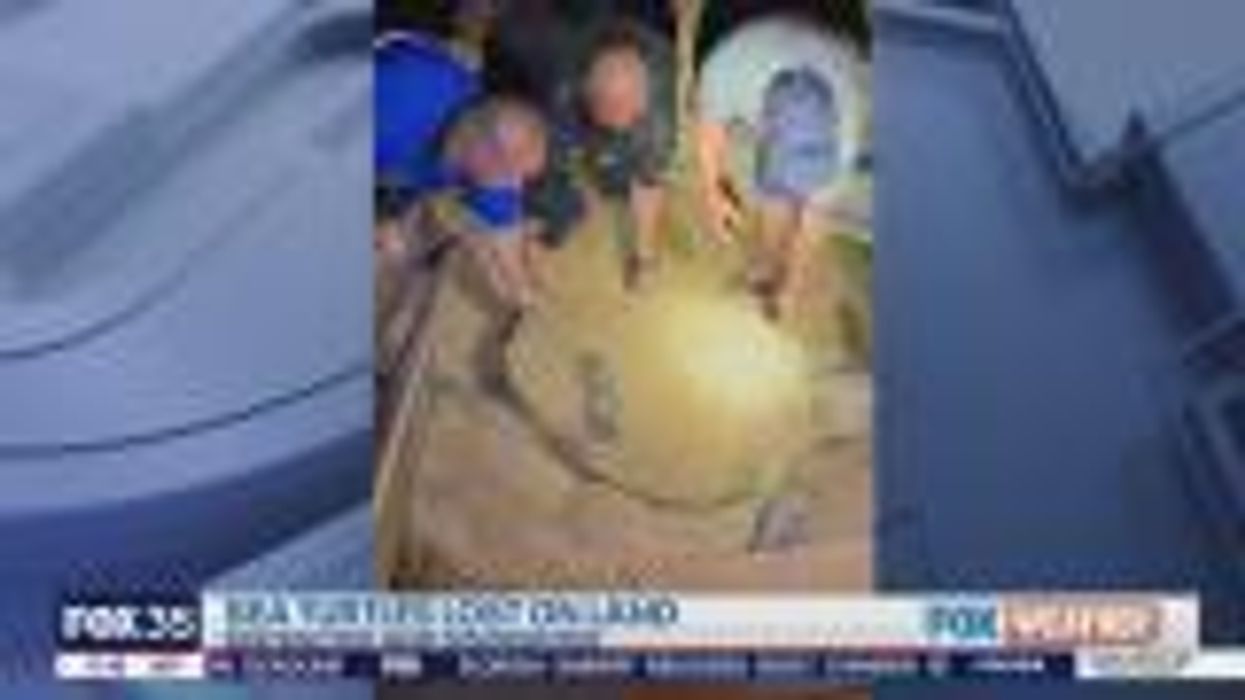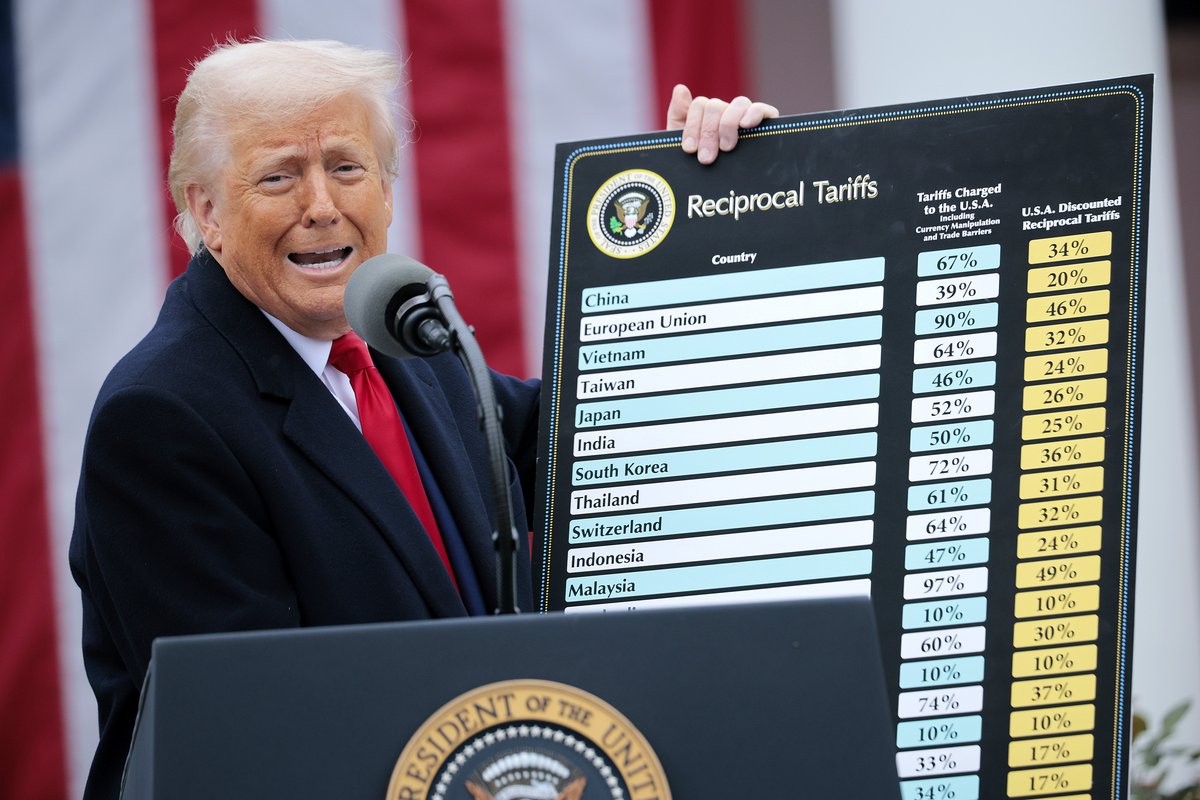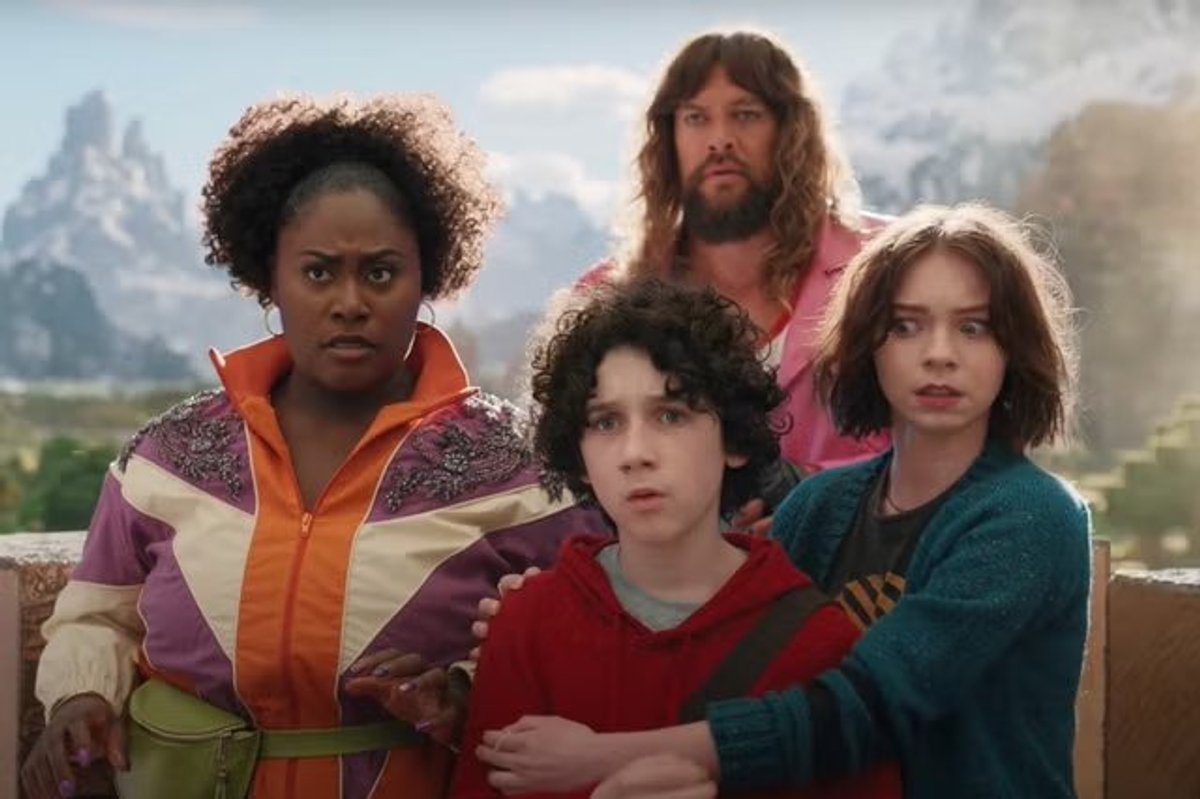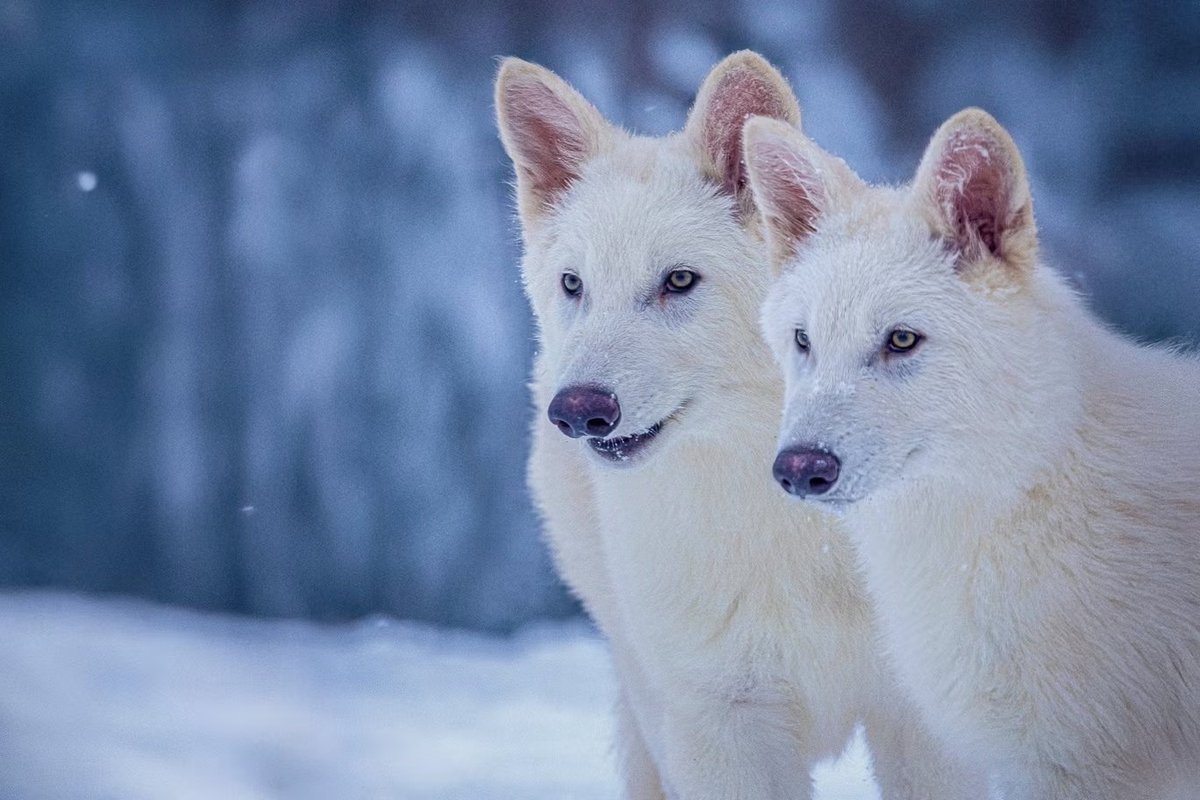A green baby turtle in Australia was found to have overeaten plastic to the point that it pooped it out for six consecutive days.
The infant turtle, which weighed just 127 grams, was rescued by Taronga Zoo, based in Sydney, New South Wales.
And caretakers at the zoo's wildlife hospital were shocked by the sight.
The turtle was discovered lying on its back in a rockpool near Sydney's Tamarama beach. It was missing one of its four flippers, one of which had a chip in it.
There was also a hole in its shell which is thought to have come from a bite by a predator.
The most baffling finding was how much plastic the turtle consumed.
Sign upfor our free Indy100 weekly newsletter
Although the caretakers had complete faith the baby turtle would recover well and grow to become healthy and robust, they were worried that it spent six whole days "defecating plastic," given its size.
"So, for a little turtle this size, every single day, no faeces came out, just pure plastic," said Taronga veterinary nurse Sarah Male in a video uploaded by the zoo.
"We do have all of the plastic... we've collected it and counted how many days, and we came up with six tiny vials full of all different sizes of plastics," she said.
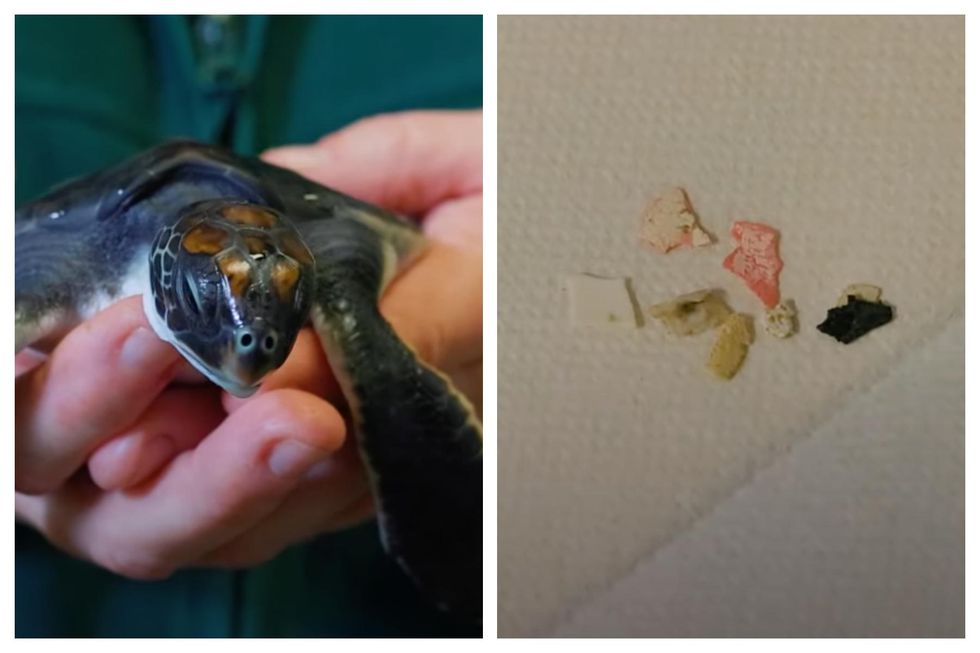
Male said plastic is pretty much all the turtles eat because "there's so much" around.
She further noted that the turtle was "lucky" because some of the plastic it ate and passed out "was really hard," so it could've caused a blockage.
"This guy... just say luck was on his side!" Male said.
Although the turtle has had tremendous progress since the plastic exited his system, it may take an entire year before it's released back into nature.
Unfortunately, the incident with the baby turtle isn't uncommon for Taronga's Wildlife Hospital, which cares for up to 80 marine turtles annually.
Many of those turtles are admitted into the hospital with significant injuries as a result of plastic and hook ingestion as well as getting caught in fishing lines and crab pots.
"If everybody just takes a little bit of their time to pick up a bit of rubbish – it doesn't have to be on the beach – then hopefully we can make a difference," Male said.
Plastic pollution in oceans continues to be an extensive problem, but small steps towards change are being made.
The New South Wales Plastics Action plan is setting out actions to help reduce the impact plastics have on the environment.
The NSW generates 800,000 tonnes of plastics annually. Only 10 per cent is recycled.
The plan hopes to make strides in this by creating law changes and restrictions such as banning single-use plastics like plastic cutlery, reducing plastic waste, and supporting plastic research.
Have your say in our news democracy. Click the upvote icon at the top of the page to help raise this article through the indy100 rankings.
